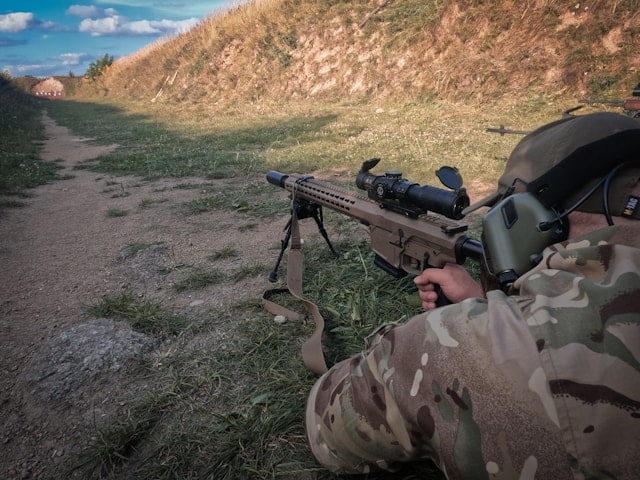What Are the Effects of Mindful Meditation on Concentration Levels in Elite Snipers?

In today’s fast-paced world, mindfulness and meditation are more than just buzzwords. They have become integral practices for many people seeking better control of their lives and a greater understanding of their own mental processes. But can these practices really help improve concentration under the most stressful conditions? To answer this question, we’ll delve into a study that examined the effects of mindful meditation on the concentration levels of an unexpected group – elite snipers.
The Practice of Mindfulness and Meditation
Before delving into the study, let’s explore what mindfulness and meditation are all about. Mindfulness is a state of active, open attention on the present moment. It entails observing one’s thoughts and feelings without judgment. On the other hand, meditation is a practice where an individual uses a technique, like focusing their mind on a particular object, thought, or activity, to train attention and awareness, and achieve a mentally clear and emotionally calm, and stable state.
Dans le meme genre : How Do Sled Push Workouts Enhance Explosive Strength in Rugby League Props?
Mindfulness meditation, then, is a practice that combines these two elements. It involves focusing one’s attention on the present moment and accepting it without judgment. But how does this apply to the military context, and in particular, elite snipers?
Applying Mindfulness Training to the Military
Given the high-stress nature of military operations, soldiers are constantly seeking strategies to manage stress and improve their performance. For snipers, whose role often requires extreme concentration, any tool that can enhance their focus can be a life-saver.
Dans le meme genre : What’s the Best Way to Structure a Speed and Agility Program for Youth Soccer Forwards?
In response to this need, the military has started exploring mindfulness training. A study conducted on a group of elite snipers has shed light on the impacts of this practice. The main question the researchers posed was: Can mindfulness meditation help these elite soldiers perform better under pressure?
The Study: Mindfulness Meditation and Snipers
The study involved two groups: a control group that received no mindfulness training and a second group that underwent a mindfulness meditation program. The concentration levels, coping mechanisms, and stress management skills of the participants were measured using a variety of tools, including the Mindful Attention Awareness Scale (MAAS), the Perceived Stress Scale (PSS), and a concentration questionnaire.
The mindfulness training program was designed to help the participants become more aware of their current states, cultivate a positive outlook, and develop coping strategies for stress. During the course, the participants also learned various mindfulness meditation techniques.
The Results: Improved Concentration and Stress Management
The results, published on PubMed, showed that the group who underwent the mindfulness training saw significant improvements in their concentration levels and stress management skills compared to the control group. Notably, these participants reported being able to maintain their focus for longer periods, especially under stressful conditions. They also reported feeling less anxious and more in control during their operations.
The researchers concluded that mindfulness meditation can indeed improve concentration and stress management in high-stress situations. However, they also noted that more research is necessary to fully understand the potential benefits and limitations of mindfulness practices within military contexts.
While more research is needed, this study suggests that mindfulness meditation can be an effective tool to enhance concentration and manage stress. Whether you’re a soldier in the line of fire or an office worker under a pressing deadline, incorporating mindfulness practices into your life could potentially yield significant benefits. After all, who wouldn’t want to feel more present, less stressed, and better able to focus on the task at hand?
It’s not just about seeking serenity in a chaotic world. It’s about harnessing the power within to lead a more controlled, focused, and mindful life, no matter what challenges you may face.
The Science Behind Mindfulness Meditation
Understanding the scientific mechanisms of mindfulness meditation can shed light on how it influences an individual’s concentration abilities and stress management skills. The nervous system plays a significant role in maintaining the body’s homeostasis, responding to stressors, and shaping our cognitive functions.
Mindfulness meditation is thought to have beneficial effects on the autonomic nervous system, the part of the nervous system in charge of controlling the body’s unconscious actions. It is divided into the sympathetic and parasympathetic nervous systems. The sympathetic branch prepares the body for stressful or emergency situations, resulting in an increased heart rate and a heightened state of alertness. On the other hand, the parasympathetic branch promotes relaxation, reducing the heart rate and promoting calmness.
Jon Kabat-Zinn, a pioneer in this field, developed mindfulness-based stress reduction (MBSR) programs that combine mindfulness practices and yoga. These programs aim to train participants in emotion regulation, reducing symptoms of anxiety and depression in the long term. Kabat-Zinn’s work has shown that regular mindfulness practice can shift the balance from sympathetic dominance (stress response) to parasympathetic dominance (relaxation response) in the autonomic nervous system.
In the context of the current study, the mindfulness training program may have helped the snipers better regulate their emotional responses to stressful situations, decreasing anxiety symptoms. By calming their minds, they could focus more on the present moment, leading to improved concentration levels.
Future Directions and Conclusion
The study’s results are promising, indicating that mindfulness training could be a valuable tool in high-stress fields like the military. However, it’s important to note that more research is needed. Future studies could explore the impact of mindfulness practices on other military roles. Furthermore, investigating the long-term effects of continuous mindfulness meditation practice on stress coping and concentration could be beneficial.
Although the research focused on elite snipers, the potential implications of the findings extend beyond the military. The positive effects on concentration and stress management could be applicable to various high-pressure professions such as surgeons, pilots, or even athletes. Moreover, individuals suffering from general anxiety or struggling with attention could benefit from these mindfulness practices.
To conclude, it’s not just about being present or calm; mindfulness meditation can potentially aid in addressing real, tangible problems like poor concentration and high stress. It’s not merely a trendy buzzword; it’s a scientifically-backed practice that enables individuals to harness their inner strength and improve their psychological well-being. Whether you are facing the demands of a high-pressure job or the challenges of everyday life, incorporating mindfulness practices could be a game-changer. After all, as Jon Kabat-Zinn once said, "The little things? The little moments? They aren’t little." And it’s these ‘little’ moments that mindfulness meditation helps us to capture and appreciate, steering us towards a healthier, more focused, and fulfilling life.
